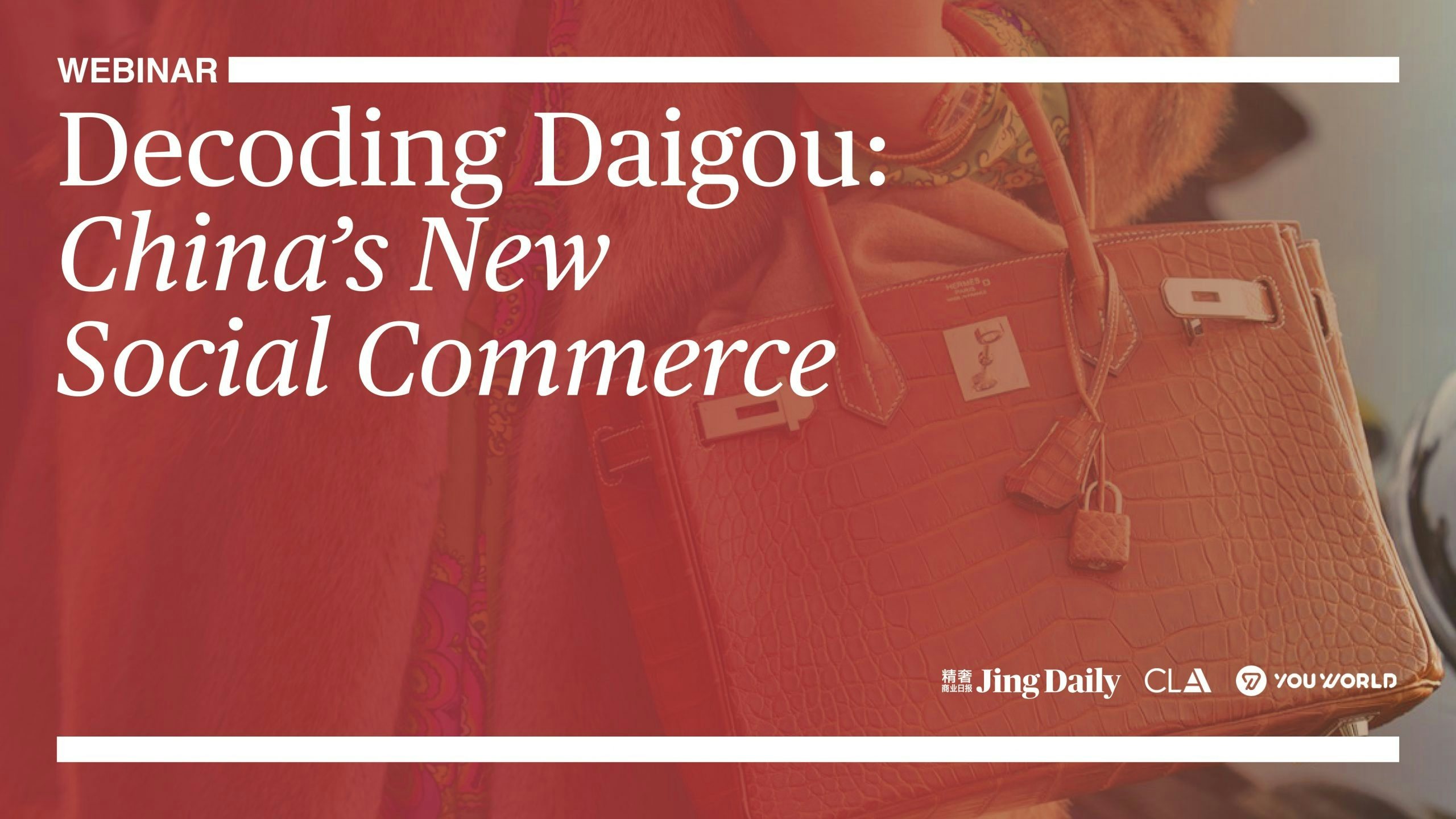On May 28, Jing Daily’s editor-in-chief, Enrique Menendez, hosted Renee Hartmann, co-founder of China Luxury Advisors; Bo Wang, the chief executive officer of YouWorld; and Yue Jin, a “Personal Product Hunter (PPH)” for a webinar on the rise of social selling in China and its impact on cross-border e-commerce in a post-COVID-19 world.
The webinar kicked off with some insights from a survey initiated by CLA that tracked over 215 daigou agents based primarily in the United States during April, showing how COVID-19 has affected their business. After presenting the analysis of the current daigou climate, Hartmann, Wang, and Jin dove into how brands could strategically engage this powerful consumer group. They also discussed how social selling is currently driving luxury brand growth in China. Below, Jing Daily highlights three key takeaways from the webinar:
The daigou market is resilient despite the COVID-19 outbreak#
The worldwide COVID-19 pandemic has impacted the daigou business since January with travel restrictions, delayed shipping/delivery processes, negative customer sentiments, and more. According to CLA’s survey on the current daigou climate, over half of respondents said that business is down a minimum of 15 percent from before the COVID-19 outbreak. Among the factors most challenging to their business, longer shipping times were the top concern, just above a decrease in customer demand. Given this, the daigou market is expected to resume so long as the shipping and delivery services get back on track.
And as China set out on its road to recovery, demand has grown for daigou services, starting in April. According to the survey, 32% of respondents expected more spending on daigou and cross border e-commerce through international retailers and brands.
Reevaluating daigou in the post-COVID era#
‘Daigou’ is a loose term for niche luxury sellers who focus on complicated cross-border exporting policies (often seen as a grey area in luxury sales), but this phenomenon deserves the attention of global brands and retailers wanting to secure more high-end Chinese consumers. This consumer group isn’t just making purchases on behalf of someone else, but it can also be viewed as a ticket to understanding the logic behind China’s social-selling landscape.
Unlike the typical customer-to-customer business model, the daigou business is personal relationship-driven. Daigou agents spend time communicating with customers on a personal level and recommending products based on their interests while gaining considerable trust from their customers. This model contributes to a lucrative market in China since local consumers tend to trust human relationships more than brand marketing information.
Meanwhile, as selling and communication predominantly happens on social platforms like WeChat, Taobao, Weibo, Little Red Book, and Douyin, daigou agents have taken on the role of influencers by introducing the latest products, brands, and trends to their clients. And as social selling took off after COVID-19 thanks to more social platform users and a thriving livestream industry, daigou agents started functioning as middlemen who can help emerging global brands build awareness among local consumers.
Rethinking strategies to include daigou#
Brands have always been cagey about interfering in the daigou business and were shy to officially engage with them, as their dealings have commonly been with store salespeople and PPHs. But their target consumer group doesn’t only contribute to the European and North American markets, but they also drive China’s market long-term. Thus, brands can take advantage of daigou to further grow their Chinese consumer base if they think globally.
Brands’ relationships with PPHs are currently controlled by in-store salespeople, which is difficult for brands to monitor or manage. Given that PPHs are not necessarily Chinese or overseas residents — and are often outbound travelers or students — building up a global customer relationship management (CRM) system would be crucial for tracking and engaging this powerful consumer group, wherever they live.
Also, exclusive and early access to products and discounts are vital for optimizing PPHs’ shopping experiences since they need to build their social content — including photos, videos, and livestreaming — to showcase these products to their clients.

